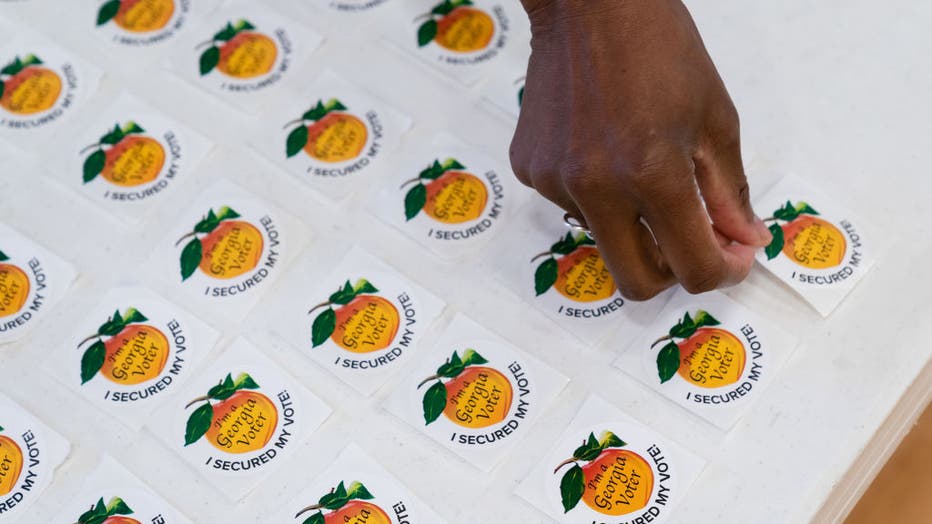Federal judge to hear challenge to Georgia's voting law

Judge to hear challenge to Georgia voting law
Advocates say the changes to voting in the state that Georgia Republican lawmakers passed in 2021 make it harder for some people to cast their ballots.
ATLANTA - A federal judge will be taking a close look at some of Georgia's voter laws Friday to see if any of the recent changes make it harder for people of color or people with disabilities to vote.
Several civil rights groups are challenging Georgia's Senate Bill 202, which was signed into law by Gov. Brian Kemp in 2021. Advocates say parts of the law make it harder for some Georgians to cast their ballots.
The overhaul of the state’s election laws was passed by the Republican-controlled Legislature after Democrats won the 2020 presidential contest and two Senate runoff elections in early 2021.
The law shortened the time period to request an absentee ballot and addressed several issues that had arisen during the pandemic election of 2020. To ease the process for voters concerned about COVID-19, the state created an online portal for mail ballot requests while counties deployed drop boxes.
After the 2020 election, state lawmakers said voters should be required to sign absentee ballot applications by hand, meaning they needed access to a printer. And while lawmakers established drop boxes as legal, they put limits on how many could be used by each jurisdiction and when those boxes would be accessible. This resulted in fewer drop boxes in the state’s most populous counties.

An election worker replaces a voting sticker at a polling location during the runoff election in Atlanta, Georgia, US, on Tuesday, Dec. 6, 2022. (Elijah Nouvelage/Bloomberg via Getty Images)
The new law also required a driver’s license or other ID rather than a signature for requesting a mailed ballot and shortened the state's runoff period from nine weeks to four weeks.
When the law was passed, civil rights organizations teamed up to challenge the changes, saying that they violated the Constitution and the Voting Rights Act. The pushback got so great that Major League Baseball moved its All Star Game from Truist Park to Denver. However, turnout remained robust in the 2022 election in the state, leading Republicans to argue the backlash was overblown.
In August, a federal judge temporarily blocked Georgia officials from enforcing penalties against people who provide food and water to voters waiting in line as long as they are more than 150 feet from the building where voting is taking place. He also blocked a part of the law that requires voters to provide their birthdate on absentee ballot envelopes.
But the judge rejected claims that certain restrictions imposed by the law deny voters with disabilities meaningful access to absentee voting.
The same judge will now hold another hearing on the law starting at 8:30 a.m. at the Richard B. Russell Federal Building and United States Courthouse in Atlanta.
If the plaintiffs prevail in the hearing, the judge could issue another order blocking additional parts of the law.
The Associated Press contributed to this report.

